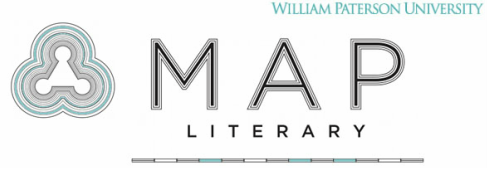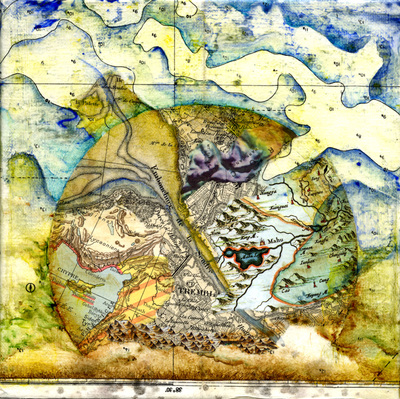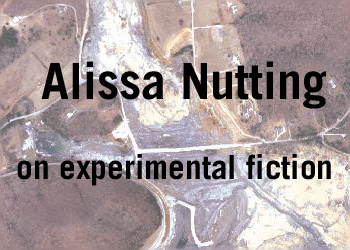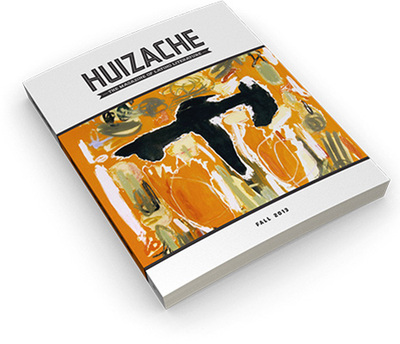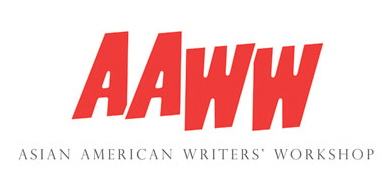ELIZABETH LEVINE
Gay Geography
We spoke a different language in 1983. What words we worshipped, what punctuation and intonation we chose, what gestures revealed our truths, what body language served as our Morse code, what shorthand we resorted to for forbidden, censured thoughts: this is what distinguished our vocabulary. We inhabited the same world, but we lived in different time zones. They owned the sunshine; we moved by moonlight. It was our own unique geography, our private dune—our illicit slice of home.
Heterosexual conversation sounded blunt, intrusive, pragmatic, and rational. It moved with arrogant purpose, righteous and linear direction. The cadence was Teutonic: systematic, contained, composed of nouns like male, female, or neuter. Even back then, we didn’t believe in neutral or gendered words, and the heterosexual tendency to categorize things misunderstood or unknown into the triangles of gender, left, right or straight ahead, astonished us. We never said “straight ahead”; we said, “gaily forward” as we drove into the Delaware darkness and mysterious places which had no name. We realized that anywhere or everywhere is merely a point of entry where we would manage to find each other—the longitude or latitude of maps that delineated land into precise plots, places precise, recognizable, historic, legitimate, easily located on maps, or, in an unimaginable future, on GPS systems. No. We could never say to the British voice on Google Maps, “Take us to the forest by the Cloisters, the tallest part of the Fens, the dunes in the Pines, the Bois de Boulogne, to anonymous sex, to the next man.”
So when heterosexuals or “breeders” (as we fondly called our straight friends), siblings, colleagues, or even enemies communicated with us, they invariably asked the wrong questions. They often demanded of us when, or how, as in, “When did you realize you were gay? How long have you been out?” as if we were left outside to hang in the rain. Therapists, supporters, psychiatrists, ambulance drivers, lawyers, triage nurses: all social, medical or therapeutic systems that encountered us, like a constellation of limpid and dying stars, defaulted to this measurable language of numbers, years, onset, episode, relapse. “How long? Since when? Where was the first time? Who?” Take for example, the dreaded but familiar Emergency Room physician asking, “How long have you had that red rash? Have you ever been treated for syphilis, gonorrhea, crabs, Hepatitis B? How long have you been HIV positive?”
This clinical tendency to measure out homosexuality in units of time, length of duration, onset of symptoms, alienated our ears. We muted the volume of inquiry, bad news, and diagnoses. We simply did not speak in these terms of well-intentioned strangers who did not see us, only classified us as walking DRG codes or DSMV terminology. But we defied these labels because they limited us, put us in boxes checked on triplicate forms that required informed consent to release information, to share our secrets with other human service strangers and we refused.
Instead, we engaged in active listening, a skill lost to the complex web of social service providers who treated us. No. If we needed to understand each other, we asked only open-ended questions that ended in exclamation marks—empathetic, non-judgmental, curious and inquisitive; we listened for association, imagery, figurative language, metaphor or hyperbole. Our language was rich with assonance, consonance, rhythm, meter, alliteration, ellipsis, similes, diction and syntax; poetic techniques foreign to everyday language with its yes, no, not applicable. Everything about our language was applicable. We spoke in snapshots, the shift and the nomenclature of identity politics that heterosexuals couldn’t translate.
We rarely asked direct, linear questions like when or how long, mere data points. Instead, we wondered why. Instinctively, we opened our conversation with where, longing for a familiar place. We searched our memories and our five senses, because we knew each other by geography, not by time. Every city evoked a smell of cologne, or a taste of crystal meth burning the back of our throat, or the touch of masculine hands on our slender hips. We shared a sensory language: sight and sound, touch and taste. We inevitably returned to the strongest of all these senses, to the visceral sense of smell; this was our equator. We spread out in all directions, the spokes on a pinwheel, stretching across continents in search of one another—the map of gay geography.
So when straight acquaintances presumptuously asked questions like, “When did you come out?” and we failed to respond with an age or a year or a date or an eclipse of the moon, a change in the seasons, they could not follow our logic or reasoning. We didn’t even blame them. Instead, we returned to where we were when we first knew we were gay men.
We were standing in the kitchen of the Owl Bar, the one we shared with the more formal, and therefore expensive, John Edgar Howard Room in the Hotel Belvedere in Baltimore. This Art Deco hotel, one of the loveliest in the city, anchored the four block sliver of streets that came as close to being “gay” as Baltimore could bear at that moment in history. Meaning that the Peabody Academy of Music, the Maryland Institute of Art, Louis Bookstore Café and the Rodin Museum formed the boundaries of culture that divided Baltimore from itself, the low-rise projects and high murder rates occurring outside of this safe haven.
Here in this square world, we were safe in our triangle. Danger lurked around each corner: we were subject to hate crimes, harassment, and occasional violent beat downs or almost as bad, shake downs for money. Gay bashing, racial profiling: this language had not yet infiltrated daily conversation, so we didn’t even have a name for police brutality, discrimination, or any recourse against the laws forbidding sodomy. These indignities remained hidden and shameful, invisible, unreported because they had no name for these crimes or legislation to protect us back then.
The Hippo, our only disco on a side street off of Charles Street, was our north star, because inside the walls of that dark bar, it was safe to be queer. Our South Pole was the Club Charles, the bar with a pink neon sign across the street from the Charles Movie Theater, the only art cinema in the entire city. The cocktail lounge swelled with college students, closeted gay men, and of course, John Waters and Divine.
Eliza was with us, waiting in the hot kitchen of the restaurant. She was surrounded by stainless steel equipment, the taste of fresh buttered rolls in our hungry mouths as we placed our orders, waiting next to the perpetual, patient shadows of black bus boys who fed their families from the tips we shared. She wolfed down hot rolls because she only ate one meal a day—Kraft macaroni and cheese or a chocolate éclair—hoarding her calories for binge drinking. Eliza was petite and thin when we first met, but by the end of her sophomore year, before the summer of 1983 when we all moved to Rehoboth Beach, she looked bloated from the booze.
Our Caesar salads, bacon cheeseburgers, and onion soup appeared on the industrial counter, warming under the heat lamp until busboys nicknamed “Bug” or “Mac” or “Prince” placed the food on oval, rubber trays coated in some synthetic material the texture of burnt sod. Grown black men in bow ties and black tuxedos, young white waiters in Khaki pants, white button down shirts, and beige ties: our dress, subtly different but identical in that we all wore the uniforms of servitude. The busboys were old and tired enough to be our parents. They carried the burden of the heavy trays; the white waiters merely took orders, brought drinks, and charmed diners.
The waiters were college students: almost entirely gay men and straight women, all white, to reflect the clientele. Our preppy uniforms conveyed privilege, dressed in the clothes that Chesapeake Bay Captains might wear with loafers on their boats. The poor busboys or dishwashers dressed in the unforgiving fabric of polyester, making them sweat in the hot kitchen.
This divided land of privilege and powerlessness, the kitchen between the two most popular restaurants in Baltimore, is where we associate coming out. Or, as Andrew Sullivan would say twenty years later: “Coming Home,” because home implies safety and family. Many of us came from homes where we were forbidden to return; that is why “home” is an alien word to gay men of our generation.
After the Owl Bar closed at midnight, and the last drunk Towson State College student had consumed three yards of beer in those enormous, glass, oversized chemistry beakers—for which we were famous—we awakened and claimed our geography. We gay waiters and bartenders: Chester with his handlebar moustache, Jim with his eyes like a doe, Steven with his boy-next-door face and body built to plant harvests; and, of course, Eliza, the self-destructive fag hag who preferred to drink and dance in the safety of the Hippo, where she could get wasted but not laid. The Fabulous Four or Gang of Four, as we referred to ourselves, depending on our mood, changed out of our uniforms in bathroom stalls in the hotel lobby and slipped into suggestive clothing that represented the opposite of a perfectly ironed white shirt. We wore pink, orange, purple; we chose accessories that distinguished us: boas, spiked heels, t-shirts died periwinkle, sage, or garnet. We squeezed into tight jeans that showed our package, or in Eliza’s case, Betsy Johnson dresses that demanded attention and said, “Here I am. I refuse to be invisible.” We were ready. It was April, it was after midnight, we had money in our pockets, and we crossed into familiar territory, leaving the trappings of Brooks Brothers’ pants and shirts to the confines of our lockers, hanging white long-sleeved button-down dress shirts, crisp for our next shift—our daylight clothes.
We walked together arm-in-arm, singing “YMCA,” and laughed with the freedom that comes from finishing an eight-hour shift of: “Hello, my name is unimportant, and you will forget it the moment I say it, but I will be your server tonight. Our specials are unremarkable and they cost $12.95 for an appetizer and $18.95 for a main course. Can I bring you a cocktail before dinner?” It was a short walk in a starlit sky to the Hippo, where we no longer served others, only our own self-destructive desires and compulsions.
“This is why I keep coming here. Nobody wants to fuck me even though I’m an easy lay. I feel safe here,” Eliza told Jim one night. He understood.
At the entrance to the Hippo, a beautiful bouncer—gay or straight (nobody cared)—stamped our hands with a glow-in-the-dark triangle that allowed us to come in and out of the bar to smoke. Everyone smoked back then, before it became a crime. As we entered the crowded bar, Gloria Gaynor’s “I Will Survive”—our national anthem—pulsed through the stereo system.
A beautiful, bald black man with a Baltimore Orioles hat sitting backwards on his gleaming, smooth head worked in the DJ booth. Jim wanted to rub Eliza’s hands over it—a globe, so round, so dark, so absolutely astonishing that he couldn’t understand why the DJ would cover it with a cap from a baseball team that hadn’t won the World Series in over a hundred years, and probably never would in his lifetime; a symbol of nostalgia and impossibility. The DJ slid albums out of the record jackets as if music came in envelopes. The turntable was a perfect plastic planet, the record a memory, the song a moment in history that tied us to this time and place. The DJ looked like he lived in the low-rise projects, the roughest housing projects in Baltimore, five blocks east towards Pratt Street into a foreign country where white boys, gay or straight, dared not enter.
The DJ’s clothes also linked us permanently to the 1980’s, when straight, black men would exchange sexual favors with white gay men for the price of a rock. We lived through the crack epidemic, exchanging sex for drugs, unaware of the currency we swapped or the interest we would all pay. Now we have a name for this: On the down low. Back then, we couldn’t care less what we called things, only that it was a shared language void of excuses, or pity, or judgment. In that sense, it was the most beautiful, romantic language ever spoken because it was color-blind, tolerant, and merciful.
Few openly gay black men lived in Baltimore; they took the Greyhound night bus south to Washington D.C. where the most beautiful African-American drag queens lived and worked, or they saved up for the Amtrak train to New York City, where they turned tricks in the men’s room to earn enough money for a night at the YMCA on 14th street. It was a diaspora of beautiful, black boys with big dreams and empty pockets. Some broke black men turned tricks on the stroll at the pedestrian mall, giving and receiving blowjobs to support their crack habit.
At the Maryland Institute of Art, or the Owl Bar, or the Hippo, or the gay beach at Rehoboth, our world of young, beautiful gay boys never paid for sex. We gave it away for free, whenever we could, wherever that might be. We heard stories of older gay men getting mugged with their pants down, or of guys hooking up with an occasional bisexual college student like Evan, an economics major from Hopkins who went to Phillips Exeter and had a girlfriend but still died in 1986, sequestered in his parent’s home in Wellesley—before the words “AIDS” or “bisexual” existed.
Eliza lived on the Homewood campus at the northern end of Charles Street: in essence, it was a geographical demarcation line from her underground gay world and the world to which she belonged. Faculty, students, scholars, Nobel Prize-winning mad scientists, disturbed MENSA undergraduates who wandered the campus talking to trees in equations and formulas—this was her uptown world. Yet Eliza gravitated downtown to the gay village where we lived. She knew as much about this gay underworld as anyone of us did.
Occasionally, one of her brave college roommates would join her for a drink at the Hippo before heading south to the Inner Harbor where the college students drank on weekends. The college students traveled north and south only from the Homewood campus to the Harbor; the gay men stayed within the four-block limit carved out from the rest of the city neighborhoods. These four blocks we overtook, these streets we claimed: this was the only Baltimore we remembered or needed.
We all liked her redhead roommate Peggy from Pennsylvania who smelled like a steel factory, her broad back and thin legs an odd combination of Pittsburg Steelers and Laverne and Shirley. Peggy, after a long night of drinking, decided to puke like a lady into her pocketbook on her cab ride back to campus. We thought this story was hilarious, because Eliza, on the other hand, always made a mess, every night emitting some sort of bodily fluid.
We were all oblivious to the growing tensions simmering under the asphalt streets and empty lots lining the vacant storefronts on North Avenue where we could buy fried chicken, alcohol, gas, used clothing from the Salvation Army or guns. Far worse than what we could buy, was what we could see: urban decay stretched so far that there was no end to a trail of boarded-up brownstones, homeless men sleeping in refrigerator boxes, broken street lamps; lights extinguished so that darkness smothered that entire intersection, as if the entire east coast of Baltimore had lost electricity because the power company shut off all the lights in the black neighborhoods when residents couldn’t pay the utility bill.
City buses carried its passengers like cattle, docile from over-crowding. The sad blue and white city bus wheezed its way up Charles Street, carrying black women uptown to clean white people’s houses, kneeling on all fours to wash their tiled floors; or returned black men south on St. Paul Street after the grave-yard shift ended at a 24-hour diner downtown located in the ghost land between the tourists staying at the Chart House or Little Italy on North Avenue—attractions and areas that distinguished the east and west parts of Baltimore, an unspoken but impenetrable dividing line that segregated the white folks from their black neighbors. To the white folks it wasn’t institutional racism; it was merely Southern boundaries.
One night in April at the Hippo, a drunk, wobbly Eliza—her face a white pale moon with pink lipstick looking like a Betty Boop caricature—danced barefoot, flapping her arms around like a pretty, plump flamingo, and stomped on the apple martini cocktail glass that fell from her hands when she tried to copy the “Y” “M” “C” “A” hand signals. We associated her petunia pink pout with the Hippo, the year we turned 18, and had a raging pride and defiance and an avalanche of conflicting emotions that we could not yet identify. We recalled every nerve ending and intertwined limbs, every orifice and image as fluorescent, magical, suggestive; sensuality so raw and animal it was a force of nature.
“Fuck!” she said. “There goes my drink! What a waste!” Defeat and frustration lined her charcoal-brown eyes, her eyeliner running so she looked like a feral animal caught in a trap; her pupils dilated from the coke she snorted after work in the ladies bathroom. Actually, the Hippo had no ladies room because, except for Divine and a rare transgender, Eliza was always the only girl, and as far as we were concerned, one of the gay boys.
Along the edges of that season, jagged moments interrupted us with an eerie foreshadowing that we deliberately ignored, like Eliza shattering her martini glass that evening, stepping on sharp shards, leaving splinters in her feet, blood flowing, so much blood; and even with the disco ball pulsing, and the dark lighting, her blood a garnet river for the shirtless, sweaty, sexy men sliding on as they bumped and grinded, until we all fell down. Eliza’s wounds did not wreck the suggestion of sex in the glory hole in the bathroom, where even on a slow night, we could sense someone anonymous waiting for us on the other side, whispering, “Don’t ask me my name.”
We never needed names. The deliberate rejection of identity, abandoned words, grunting sounds like oxen carrying a heavy burden up a slippery slope, the pounding of hardened hearts with horns that could easily kill us despite the false safety of the flimsy plasterboard wall between lust and joy, made these moments seem as if something profound had been sacrificed in the bathroom stalls at the Hippo. Sex was a hurricane about to smash the shore and erode the seashore, a national landmark. Then and there we realized we were gay men.
If you could ask me when I came out, I would tell you I remember the sight of the pale, pink Watermelon Martini we drank with Absolut, the taste of the sweat I licked off my first lover’s back, the smell of Eliza’s perfume, Chloe, which we all loved: very French, very chic, very feminine, very BTG (Be the Girl), the sight of the blue baseball cap with an Oriole on it that the DJ at the Hippo wore, and the touch of my hands on bodies in the dark: chest, beard, calves, cocks.
I remember the smell of a man, not dates; and the sight of Eliza on a stretcher before being taken to Johns Hopkins emergency room for stitches to be sewn together in the most dangerous neighborhood of the worst part of town, not one gay man among us willing to forgo sex to accompany her through the endless night. She waited alone in the Emergency Room. Gunshot wounds, burns, stabbings, trauma—what made the Johns Hopkins Hospital so famous—sealed the wait for Eliza’s care to be long and lonely, low on the list of emergencies that flooded the department of the dying and the nearly dead.
What I also remember is the aroma of the cherry blossoms in April as we walked home to our apartments or dorm rooms after the incident that night. We thought about calling the hospital to see if Eliza had been discharged, but we didn’t. At dawn, when we walked into our rooms, answering machines blinked angry red accusations. I can’t speak for the others, but I can tell you, I remember the sound of my betrayal in Eliza’s voice, and recall word for word the message she left.
“Congratulations. You treated me like a real man. A straight man.” And she hung up. The flat dial tone sound on the aqua and sunshine-colored rotary telephone shaped like I Dream of Jeanie, exaggerated and grotesque, haunted me with disappointment so profound that it stayed with me until I died. I knew then that I was a gay man. Why? Because when I had to choose between anonymous sex and helping Eliza, there was no choice. There was only sex. Knowing that truth was like swallowing a cold black stone that no surgeon could ever extract. It was a hidden internal hemorrhage, a bleeding out wound that never healed. I touched that wound, but never acknowledged it, never spoke of it, never gave it a name. What was worse, I never apologized to Eliza, never heard how she made it home. Crutches? Crawling? Crying? I simply didn’t ask.
“So how long have you been gay?” someone asked me. This is how long: since the night of the black stone and the days of the cherry blossoms, since the Baltimore spring of 1983 when I found myself unable to sleep and walked into the Catholic Church on the corner that I had never noticed before. It seemed like every corner in Baltimore had a catholic church the year I discovered I was gay. I went directly to the confessional in the back of the dimly lit church to a priest I would never know, just like the anonymous man from the previous night who tasted of Rheingold and Newport and the scent of cheap Old Spice cologne: it gave away his age and his income.
I knelt down. It was ironic, me being on my knees after being drunk a few hours ago committing carnal sins illegal in the state of Maryland; behavior condemned by my childhood religion and the straight people who practiced it, who revolved in a different orbit than my own fire-engine red, sinful planet, as hot as Hades. I felt a defiance and guilt that were so intertwined they choked each other. I tasted the flavor of Southern Style of lies, which Northerners mistake for beautiful manners and a good upbringing to avoid offending people. When the priest waited for me to genuflect and ask God’s forgiveness for my sins, he said to me in a gentle whisper, “My son, what do you dream of at night?”
Lies were easier than truth. “I dream of women, Father.”
“That’s good my son,” he sighed in relief. “Say four Hail Marys and light a candle when you leave to remind you how Jesus died for our sins.”
Shame made it that much harder to rise up. I left the confessional, lit a candle, and knew I would never enter another church for the rest of my gay life.
So Baltimore, the city of sex and sins, the language of lust and lying, the smell of self-loathing, the sight of Eliza’s pursed pink pain and the ruby color of her blood spilling everywhere, savage in its hue: that pink and that red were the colors I would forever associate with the last night I ever lied to a priest or anyone else about who or why I was who I became in the world. So don’t dare ask me why or for how long but where and with whom and why not. That’s what I learned in that confessional: why not now?
Baltimore reminds me of the shift in my own identify, the ambivalence of pretending to be anyone other than whom I learned I was—a gay man, plunging recklessly into a landscape of half-naked men, glistening in the pulsating light, unaware of the price we would pay for what we reaped, for what we sowed.
Copyright © September 2019 Elizabeth Levine
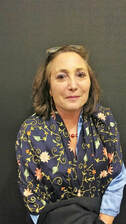
Elizabeth Levine, M.A., M.P.H., M.F.A., Adjunct Faculty, English Department WPU is a trilingual author, poet, and adjunct professor at William Paterson University. Her novel, What Remains, written under the pseudonym Charlotte Clear, is currently being adapted as a play under the title And She Was There. Her chapbook, The Ribbon Around the Bomb, was published by Finishing Line Press in 2019. For information about publications and readings, visit: www.theribbonaroundthebomb.wordpress.com.
